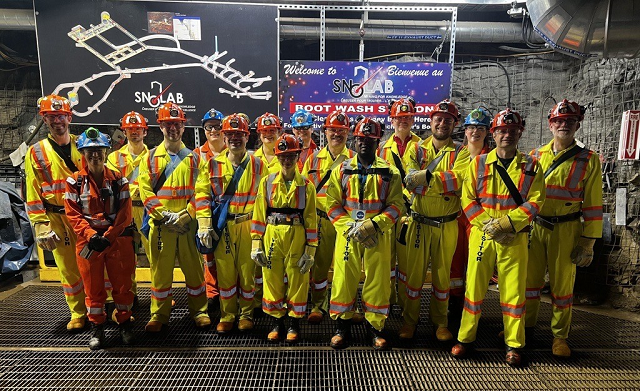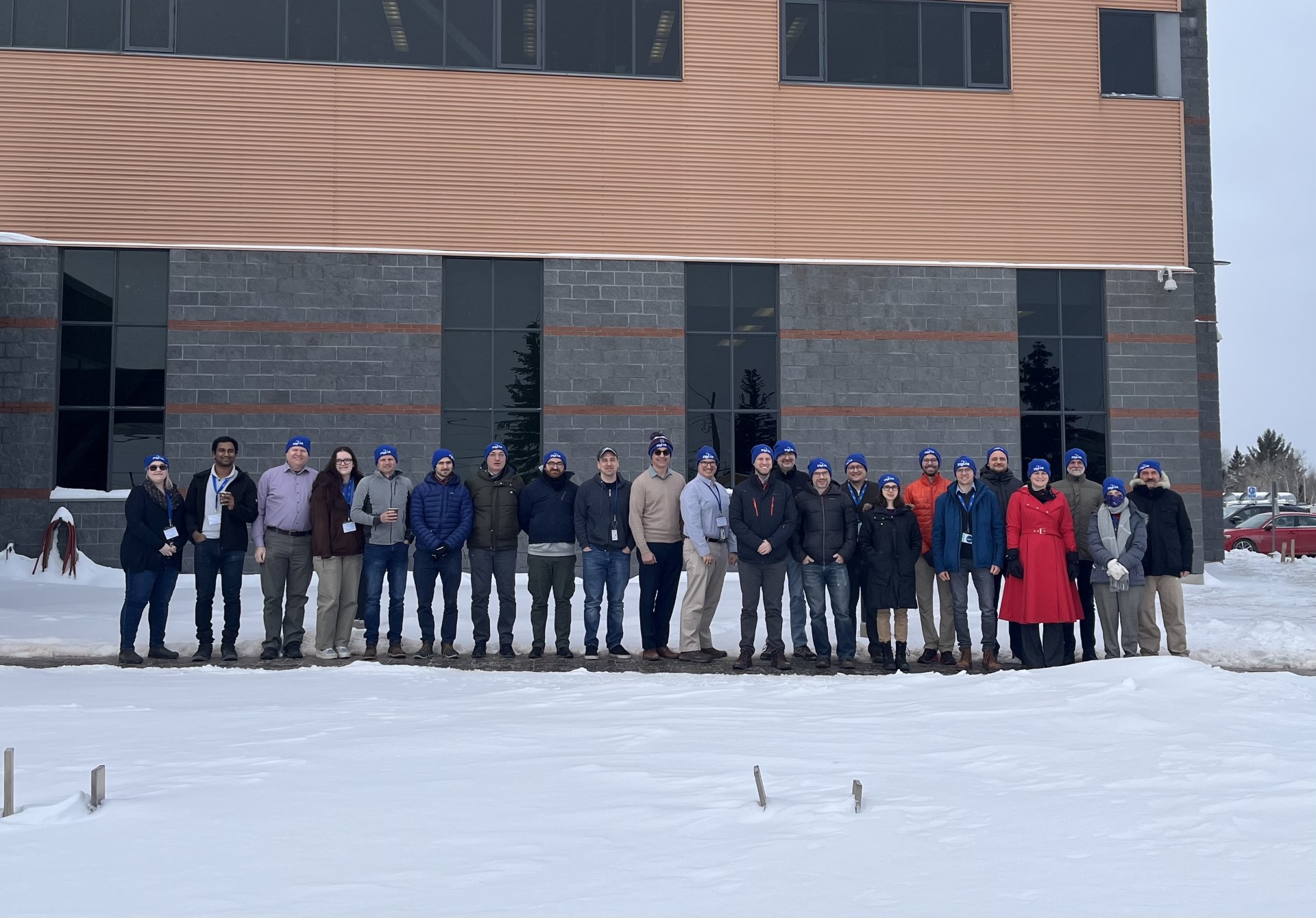
The participants at the entrance to the laboratory 2.1 kilometers underground in a nickel mine on Wednesday morning (about +30°C at that depth). Credit by: SNOLAB.
This joint effort, held from January 15th to 18th, 2024, brought together experts in fundamental particle physics and cutting-edge quantum sensors from both across the UK, Canada, the USA, and Switzerland to explore the potential of interdisciplinary research in this rapidly evolving field.
"This workshop is a fantastic outcome of our strategic hiring and talent schemes," emphasises Professor Adrian Bevan, Head of SPCS. "The expertise of Dr James Thomas, who joined us three and a half months ago as the PI on the STFC grant that funded the workshop, and the addition of exceptional talent like Nicola McConkey in January, have significantly bolstered our capabilities and allowed us to make a strong statement on the global stage."
The workshop's success is evident in the enthusiastic reactions from both sides. Professor Bevan notes that, "The workshop had a broad range of participants from quantum devices makers, engineers, particle physicists and ESA quantum technology experts. This multidisciplinary group of people created a stimulating environment to brainstorm and develop new collaborative ideas." Similarly, Dr Jeter Hall, Director of Research at SNOLAB, highlights the lively discussions and palpable enthusiasm for future research, emphasising the potential for "fundamental physics searches to be one of the early adopters of quantum sensors, driving advancements in the field as a whole and potentially leading to groundbreaking discoveries like uncovering the nature of dark matter."

With the workshop paving the way for further collaboration, the coming months will see SPCS actively consolidating its gains. "We will be drafting white papers to influence funding agencies and solidify the international network we've established," explains Professor Bevan. Additionally, SPCS will be reaching out to other quantum technology researchers within Queen Mary to form a united front for securing future UKRI funding opportunities.
For more information on the workshop, please visit the event website: https://indico.cern.ch/event/1345184/




